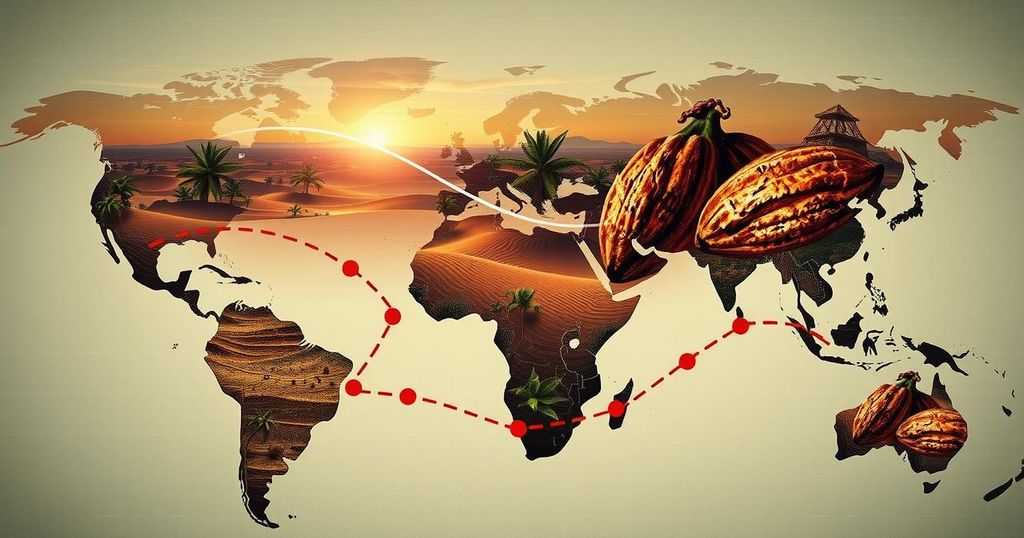The RSF’s control of Sudan’s gum arabic trade amidst the ongoing conflict has led to widespread smuggling and unregulated exports. Neighboring countries are offering cheaper gum without proper documentation, raising concerns about product integrity. Major companies are diversifying their sourcing to navigate these challenges, as the trade’s legitimacy diminishes significantly under current conditions.
Since the conflict began in Sudan in April 2023, the paramilitary group Rapid Support Forces (RSF) seized control of essential gum-harvesting areas in Kordofan and Darfur. This has led to a troubling scenario where gum arabic is now being traded by Sudanese dealers, who must pay the RSF a fee, resulting in unregulated exports through various means, including informal border markets.
Traders from neighboring countries with historically low gum arabic production, such as Chad and Senegal, have begun to offer this commodity at significantly reduced prices, often without adequate proof of its origins. Herve Canevet from Eco-Agri mentioned that determining the authenticity of gum sources has become extremely challenging, asserting that all gum currently on the market in Sudan is likely being smuggled due to the lack of legitimate oversight.
Despite assertions by the Association for International Promotion of Gums that there is no evidence connecting the gum supply chain to the ongoing conflict, industry insiders caution that the new flux of trade risks compromising the procurement systems of major food ingredient manufacturers. Companies such as Ingredion and Nexira have sought to mitigate these risks by diversifying their sourcing routes since the onset of the war.
Traders, including Mohammed Hussein Sorge, reported being approached with offers for gum arabic from Senegal and Chad at prices drastically below market value. Sorge declined these offers, fearing the low prices indicated illicit sourcing through RSF-controlled channels, reflecting a pervasive concern regarding the legitimacy of available products.
Previously, the gum was processed in Khartoum and exported from Port Sudan. However, operations have shifted, resulting in gum being traded in informal markets along the Sudan-South Sudan border, pointing to a significant change in the trade framework due to the ongoing civil strife. Here, traders now operate under RSF protection, highlighting the paramilitary’s broadening economic interests including agriculture and gold.
The RSF’s new trade routes also extend to the Central African Republic, and illicitly sourced gum has begun appearing for sale online, potentially compromising brand integrity. As reports emerge of Sudanese gum products being sold under misleading circumstances, the consequences of the ongoing conflict continue to reverberate through global supply chains, risking the ethical standards of major corporations.
The ongoing conflict in Sudan has drastically altered the landscape of gum arabic trade, leading to a system where illicit sourcing and unregulated exports dominate the market. The RSF’s control over production areas has facilitated smuggling operations, raising concerns about the integrity of gum products worldwide. Companies have begun diversifying their supply chains to ensure legitimacy amidst this turmoil, yet the pervasive risks and challenges in verifying product origins remain significant.
Original Source: m.economictimes.com




